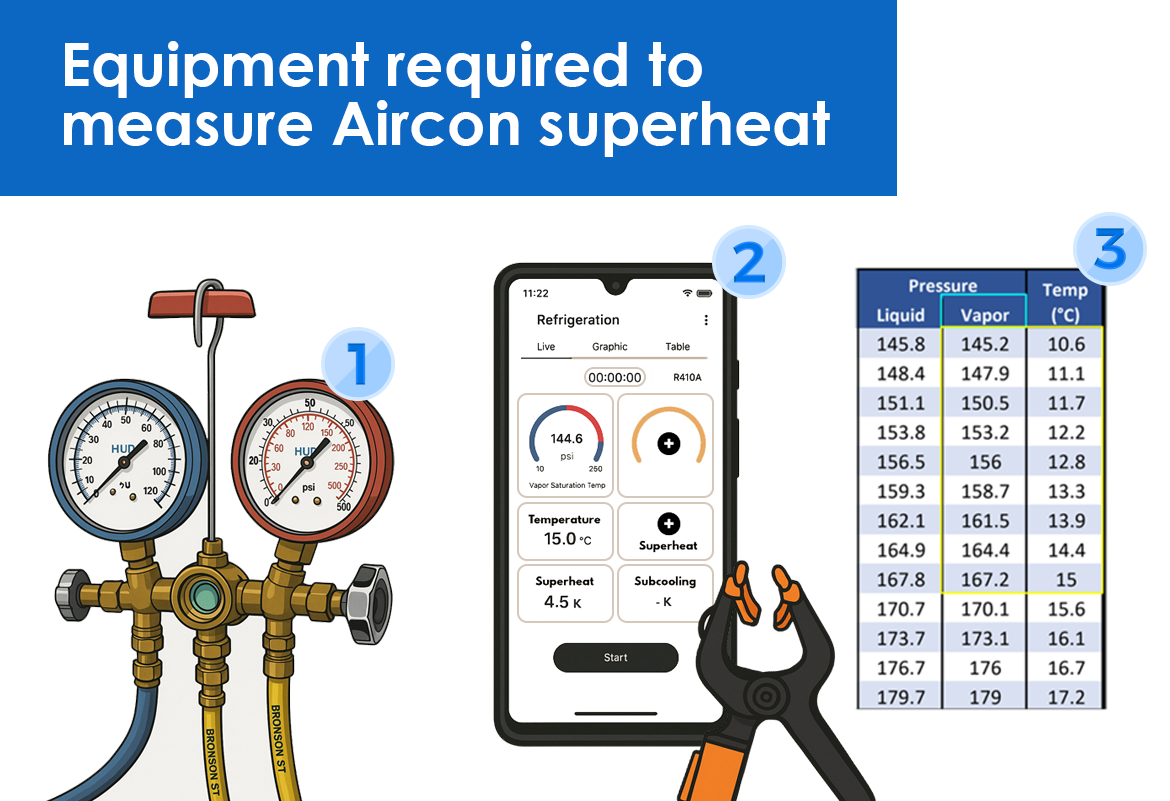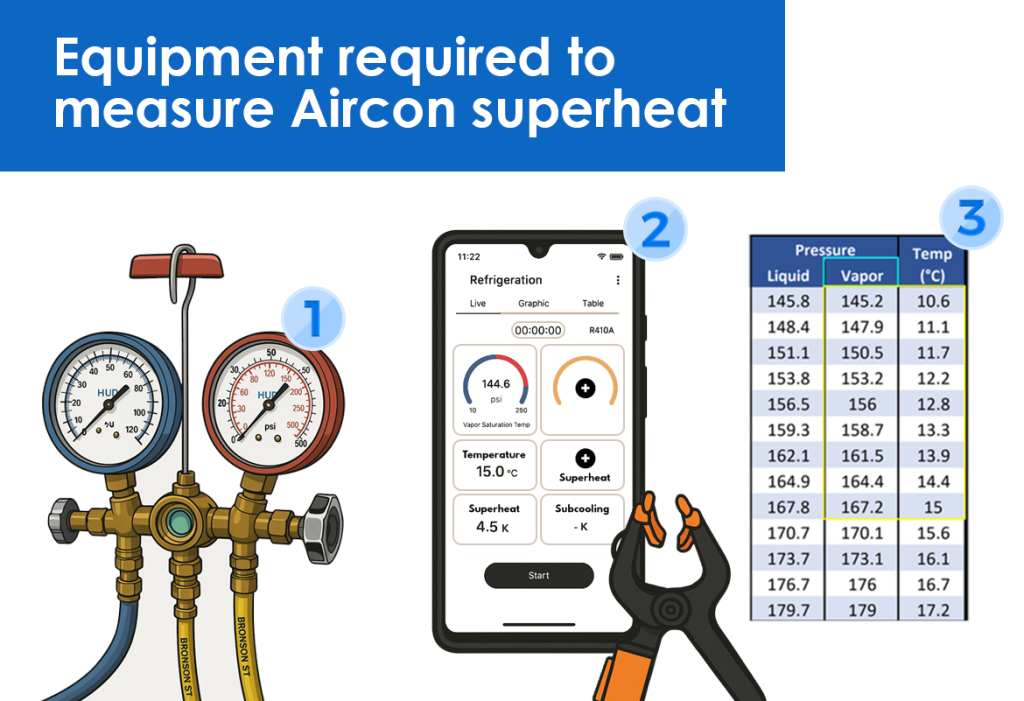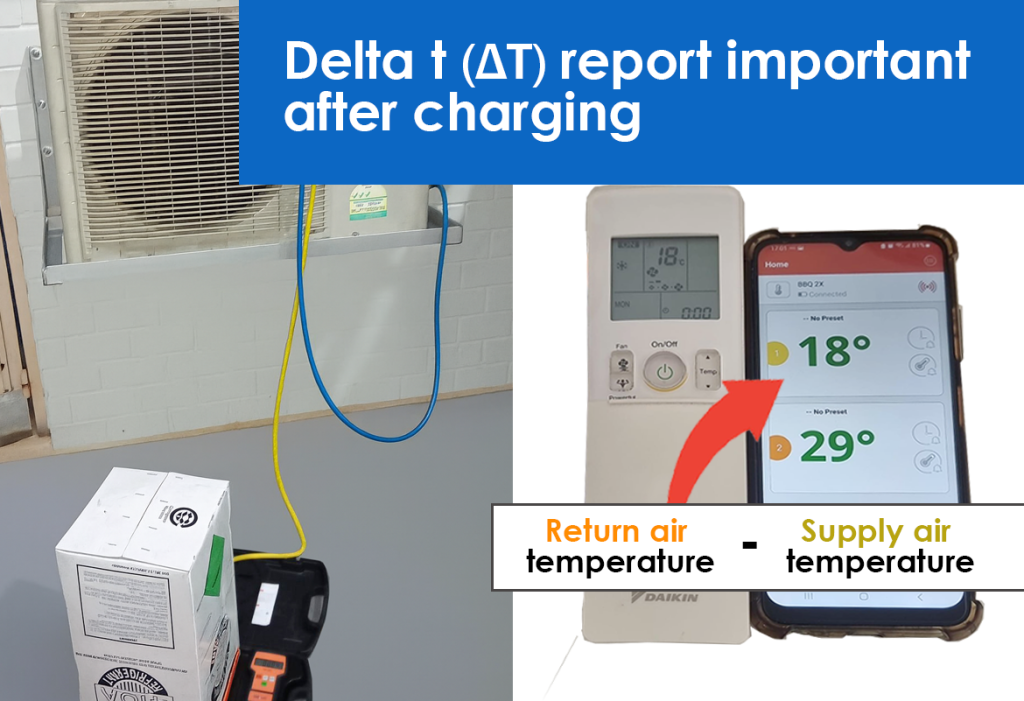To accurately measure aircon superheat, you’ll need the equipment, a pressure gauge, a thermometer or thermocouple to measure suction line temperature, and a refrigerant pressure-temperature (P-T) chart. The P-T chart helps determine the refrigerant’s boiling (saturation) temperature at the measured pressure, allowing you to calculate the superheat.
Here are the details of equipment usage:
1. Pressure Gauge:
- Measures the suction (low-side) pressure of the refrigerant.
- Commonly, a gauge manifold is used, especially for measuring pressure and temperature simultaneously.
2. Thermometer or Thermocouple:
- Measures the suction line temperature, which is the temperature of the refrigerant vapour.
- A clamp-on thermometer or thermocouple provides accurate measurements.
3. Refrigerant Pressure-Temperature (P-T) Chart:
- This chart is specific to the refrigerant being used.
- It shows the relationship between pressure and saturation temperature for the refrigerant.
How to Measure Superheat:
1. Measure Suction Pressure:
- Attach a pressure gauge to the suction line service port and record the reading.
2. Measure Suction Line Temperature:
- Attach a thermometer or thermocouple to the suction line near the suction gauge port and record the reading.
3. Find Saturated Temperature:
- Using the P-T chart for the refrigerant, find the saturation (boiling) temperature corresponding to the measured pressure.
4. Calculate Superheat:
- Subtract the saturation temperature from the suction line temperature.
Example:
- If the suction pressure is 30 psig and the refrigerant is R-22, the P-T chart might indicate a saturation temperature of 70°F.
- If the suction line temperature is 75°F, the superheat would be 5°F (75°F – 70°F).





Leave a Reply